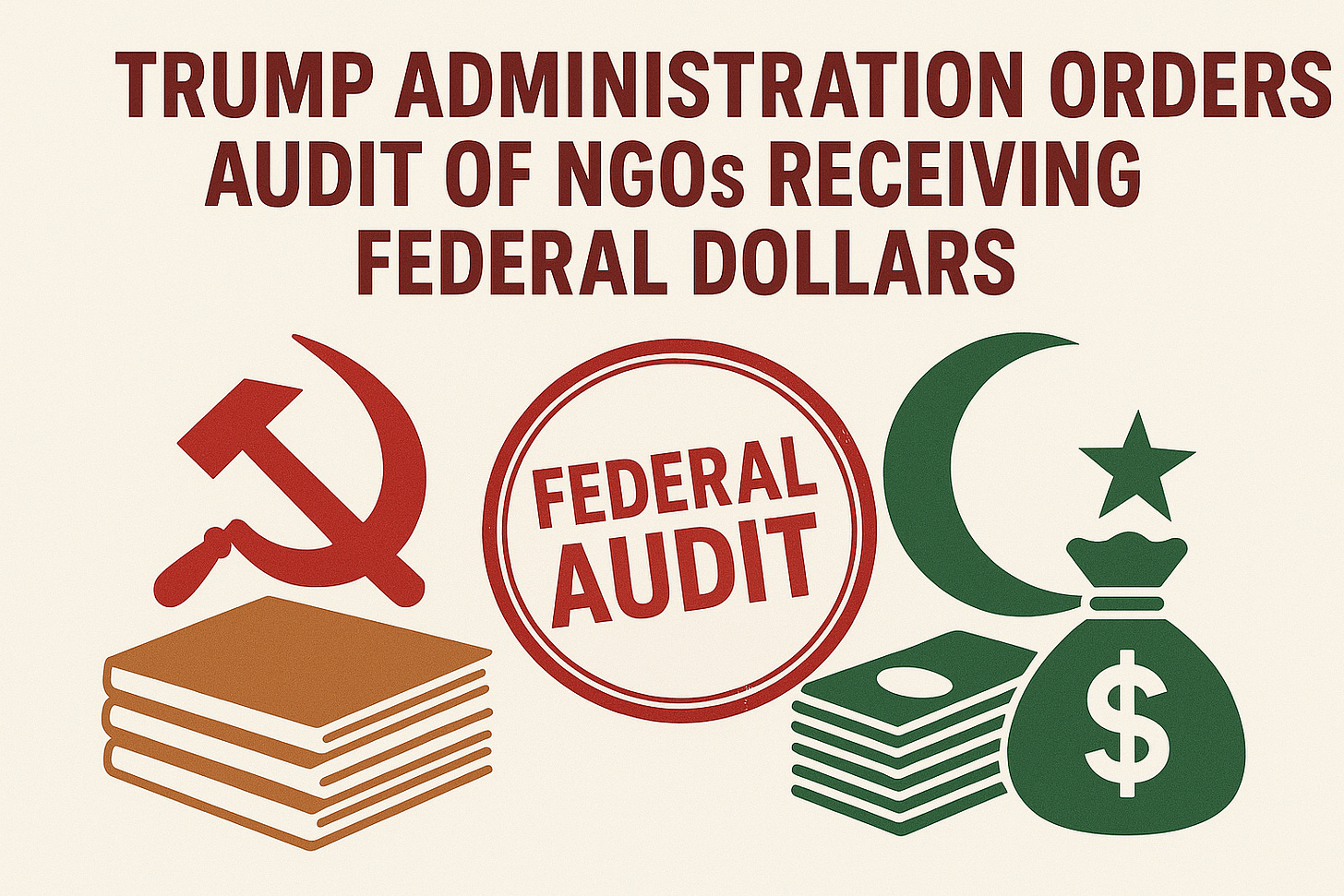Trump Orders Audit of NGOs
The Role of the Muslim Brotherhood and China in Financing U.S. Protests
In recent years, the landscape of protests across America, particularly those related to anti-Israel sentiments on college campuses, has raised alarms about foreign influences undermining U.S. national security and interests.
A presidential memorandum by the White House directs heads of executive departments and agencies to review all funding provided to nongovernmental organizations (NGOs), emphasizing the need to halt support for entities that compromise American security, prosperity, and safety, "In short, there is a strong need to strengthen oversight and coordination of, and to streamline, agency grantmaking to address these problems, prevent them from recurring, and ensure greater accountability for use of public funds more broadly. The Government holds tax revenue in trust for the American people, and agencies should treat it accordingly." This directive aligns with broader concerns over external financing fueling domestic unrest, including protests that have disrupted universities and urban areas.
While the memorandum does not explicitly name specific groups or nations, it underscores a policy shift toward scrutinizing NGOs amid reports of Islamist networks and foreign powers like China involvement in such activities. Central to these concerns is the role of Islamist organizations affiliated with the Muslim Brotherhood, a transnational Sunni Islamist group with a history of influencing U.S. networks through affiliated entities.
Investigations reveal that groups like American Muslims for Palestine (AMP), often described as a conduit for Muslim Brotherhood funding, have played a pivotal role in supporting student-led protests. For instance, AMP has been linked to channeling resources to campus organizations such as Students for Justice in Palestine (SJP), which have organized demonstrations characterized by antisemitic rhetoric and calls for divestment from Israel.
These efforts are part of a broader strategy where Brotherhood-affiliated networks exploit academic freedoms to advance agendas tied to Hamas and other extremist elements, with funding traced through tax-exempt nonprofits that have funneled millions into protest coordination and activism.
The economics of American Islam further illuminate this dynamic, as a comprehensive analysis on Islamism News identifies over 5,600 U.S. Islamic organizations forming a multi-billion-dollar industry largely self-financed by domestic donors, yet with ties to foreign Islamist influences.
Similarly, the geographical spread of these 5,600 U.S. Islamic organizations can be accurately plotted. It is mostly as expected: significant concentrations in New York, California, Texas, Michigan, Florida, followed closely by various East Coast states—areas that coincidentally overlap with hotspots for recent campus protests.Compounding these Islamist connections are allegations of Chinese Communist Party (CCP) involvement in financing and organizing similar unrest, particularly anti-Israel demonstrations that have swept U.S. universities and cities.
Reports from the Network Contagion Research Institute (NCRI) highlight how CCP-linked activist groups, such as the Party for Socialism and Liberation (PSL), have provided substantial funding and logistical support to these protests, framing them as part of a broader anti-Western narrative.
Congressional oversight committees have launched investigations into funding behind events like the Los Angeles riots—described as destructive protests with ties to CCP-affiliated entities—revealing patterns of well-organized, non-organic activism aimed at sowing division. China's financial footprint extends to billions poured into elite American universities, alongside Qatar, potentially enabling environments conducive to such protests by influencing academic discourse and student groups.
This dual influence—Islamist networks like the Muslim Brotherhood providing ideological and financial backing through U.S.-based affiliates, and China leveraging proxy organizations to amplify discord—poses a significant threat to American stability, as evidenced by the surge in campus disruptions and calls for policy reforms to curb foreign meddling. Despite China's well-documented repression of its own Muslim Uighur population, which has drawn criticism from U.S. Muslim groups for abetting what some term genocide, Beijing's strategic support for Islamist-aligned protests abroad appears opportunistic, aimed at weakening U.S. alliances in the Middle East and domestically.
Critics argue this hypocrisy underscores a geopolitical playbook where China backs disruptive elements in the West while suppressing similar ideologies at home. Meanwhile, domestic donors from prominent families like Soros and Rockefeller have also contributed to protest funding through progressive foundations, blending with foreign streams to create a complex web of support. As the White House memorandum signals a crackdown on misaligned NGO funding, experts warn that without addressing these intertwined Islamist and Chinese influences, protests could escalate, further polarizing American society and challenging national cohesion.


